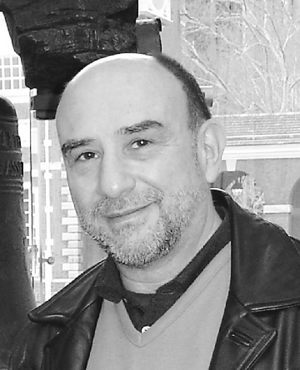By Jennifer DeMeritt
Twenty years ago, Philip Schultz started a writing program for a small group of poets and fiction writers in the living room of his apartment on Charles Street. Since then, The Writers Studio has grown into a thriving un-institution with more than 200 students, workshops in New York and Tucson, and online programs that reach writers as far away as Singapore.
Unlike many writers who teach to pay the bills, Schultz, a poet and fiction writer, is passionate about the art of teaching, and he has developed an approach and technique that form the core of every class at the Writers Studio. Though he attended the prestigious Iowa Writers’ Workshop and spent four years as the director of NYU’s M.F.A. program, he prefers running a school that isn’t affiliated with — or answerable to — an academic institution. As the recipient of a Guggenheim fellowship and several prestigious awards, he puts the lie to the expression that those who can do, and those who can’t do, teach.
I recently chatted with Schultz at Les Deux Gamins the day after a 20th anniversary reading for The Writers Studio at Judson Memorial Church. Still euphoric from the event, he shared his ideas about teaching and writing.
Why did you start The Writers Studio?
I was always serious as a writer. But I was also interested in the art of teaching. I had good and bad teachers. Some were good writers, but they weren’t necessarily good teachers. No one had ever sat them down and said, ‘You’re a teacher. You’re going to have to convey something.’ When I was teaching at NYU, I also had a private class where I was experimenting. When I started the school, I had a method and approach, and I trained all the teachers. People who had taken workshops elsewhere knew the difference. They talked about it, and the school grew.
What’s your approach to teaching writing?
I’m interested in why writers can connect to feeling. It doesn’t have anything to do with therapy. All the good first person personae, in fiction and poetry, are carefully invented personages. As a writer, you have to know the difference between what you’re making up and what your life is. What you’re making up has to be different, it has to be changed to have a point and a perspective.
What prevents writers from connecting to “feeling” the way they need to?
All real writers are interested in the truth. But according to Socrates’ idea of the truth, we’re all hypocrites. We don’t know who we are. And since we’re espousing opinions but we don’t know who we are, we become hypocrites. A good writing teacher has to be able to tell the difference between the real story and what the writer is telling him or herself.
Since you started The Writers Studio, the publishing industry has become more market driven. Does this change the goals of your students or the way you teach them?
The Writers Studio is for serious hard-working writers and teachers. We have five levels, and the attrition rate at the beginning is 70 percent. Maybe one out of ten who start at the first level get to the master class I teach, and they care about form and polish. People who care more about the market usually get weeded out at the first level.
It seems that teaching is undervalued today. How do you feel about that?
I love teachers. I think they’re so valuable. But teaching is unpromising in terms of the reward. My family and I live in a community where the kids’ teachers can’t afford to live. A lot of them drive 80 miles each way to work. But there’s something in it for them that they can’t get anywhere else. It’s an art.
Some writers talk about writing as a miserable, painful experience, yet they feel compelled to do it anyway. When you’re working on your own poetry, how do you experience the act of writing?
I’m lucky to have many pleasures in my life, like my wife and children. I [also] love teaching. But maybe the act of writing is the thing I love most. I just finished a book that will come out in the fall. There’s a long poem in the end, and I’ve never struggled more with anything in my life. I guess you could call it agony. But it’s a wonderful, sweet agony. The creative process is like life itself. It hurts.
Do you think you’ll ever retire from teaching?
Sometimes I get tired, and then I think about it. But the teaching goes hand in hand with the writing. I can’t imagine doing one without the other. I don’t think I’ve ever had an idea or worked through anything that I haven’t discovered while teaching. And I could never imagine not writing. I’ll write until the day I die.
Can you imagine The Writers Studio going on without you?
Today, 95 percent of the students aren’t taught by me, so I think it could go on without me. Would I want it to? Why not? But I don’t imagine it. Just like we don’t imagine ourselves dying.
Upcoming events in celebration of the 20th anniversary of The Writers Studio include a reading on Friday, February 23 with Gary Shteyngart and Writers Studio writers at Housing Works, 126 Crosby St., and a book party on Friday, April 13 for Lesley Dormen’s first book of linked stories, “The Best Place to Be” at the Village Community School Auditorium, 272 W. 10th St. Call 212-255-7075 or visit writerstudio.com for more information.







































